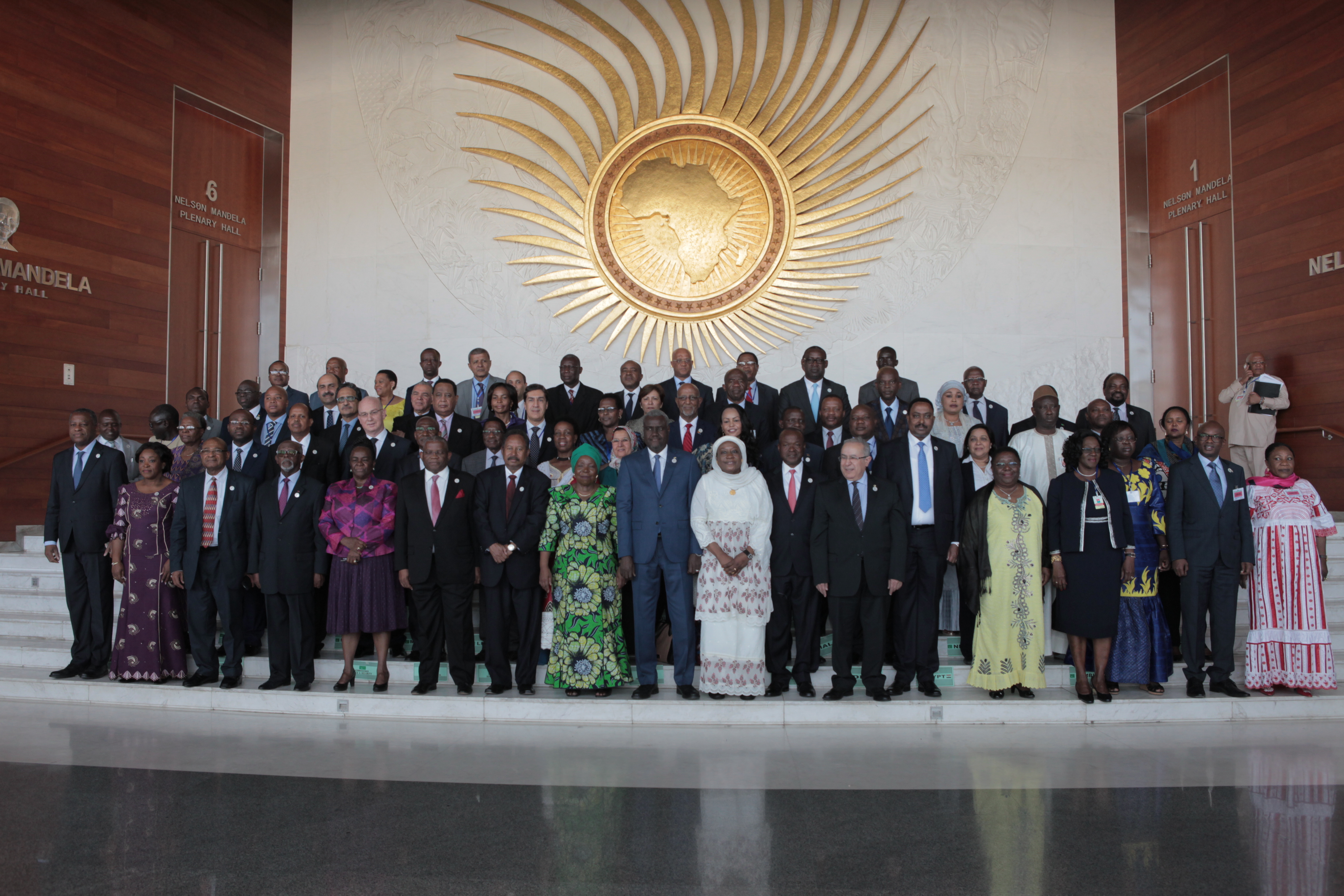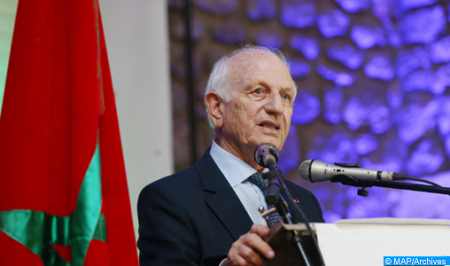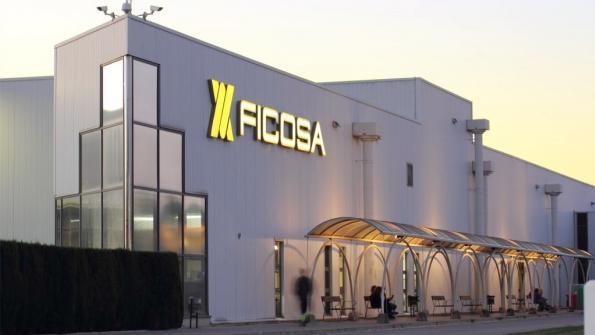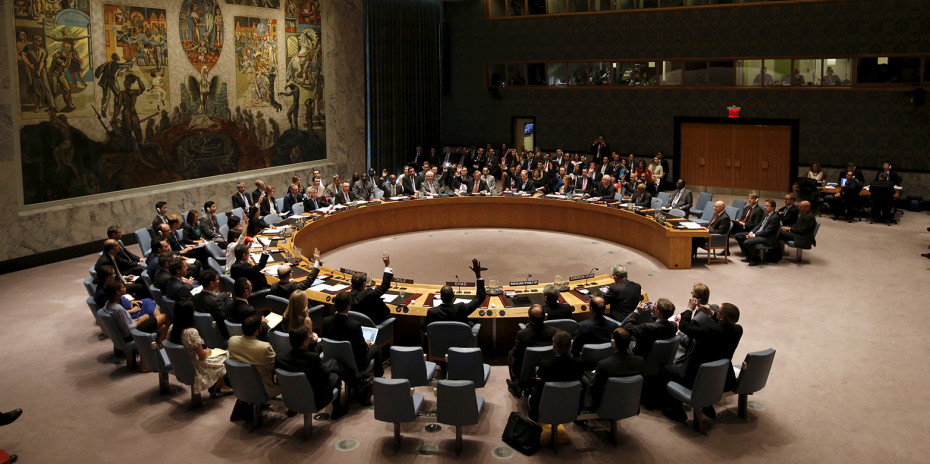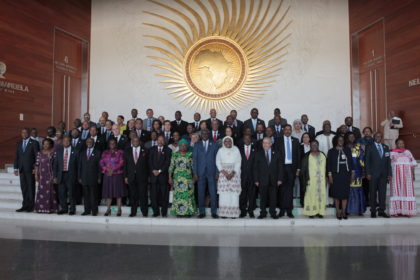 Gone is the era when Separatist proponents took advantage of Morocco’s absence from the African Union to plot against Moroccan sovereignty over the Sahara. The recently found and deserved membership of the African Union offered Morocco a podium to outspokenly voice its legitimate stands and block attempts by the adversaries of its territorial integrity, led by Algeria, which has for long used the Pan-African organization to serve its hegemonic agenda.
Gone is the era when Separatist proponents took advantage of Morocco’s absence from the African Union to plot against Moroccan sovereignty over the Sahara. The recently found and deserved membership of the African Union offered Morocco a podium to outspokenly voice its legitimate stands and block attempts by the adversaries of its territorial integrity, led by Algeria, which has for long used the Pan-African organization to serve its hegemonic agenda.
On July 1, the Moroccan delegation taking part at the Executive Council of the African Union, held ahead of the 29th AU Summit, managed to block a report of the AU’s Human Rights Commission, comprising clauses violating Morocco’s territorial sovereignty by stipulating a human rights monitoring mission in the Southern Provinces, the Sahara.
The Moroccan delegation requested omitting or amending the clauses on sending a human rights monitoring mission to the Sahara. The call to amend the clauses in question was endorsed by 16 of Morocco’s allies in the continental organization: Comoros, Sao Tome, Gabon, Madagascar, Swaziland, Côte D’Ivoire, Equatorial Guinea, Burkina Faso, Malawi, Gambia, Senegal, Benin, Guinea Bissau, Central African Republic and Cap Verde. On the other hand, the amendment was rejected by Algeria and its puppet the SADR entity as well as South Africa and the countries turning in its orbit: Namibia, Botswana, Zimbabwe and Lesotho.
For its part, Nigeria, which has signed with Morocco a landmark gas pipeline agreement, has proposed its mediation in order to find a compromise.
On the sidelines of the AU meeting, Morocco’s foreign Minister Nasser Bourita held talks with several African peers on issues of mutual interest. The diplomatic efforts engaged by Morocco at the continental level are part of a long term vision that aims at steadily securing the political support of African states to Morocco’s territorial integrity.
Morocco also has the ambition of chairing the African Union’s most powerful body, the Peace and Security Council, which has been monopolized by Algeria for years. The Council, under Algeria’s presidency, was used as a propaganda podium by the separatist proponents to the detriment of the UN settlement process and Morocco’s autonomy initiative.
In this regard, Nasser Bourita met counterparts from Nigeria, Egypt, the Comoros and Zambia. The talks tackled the means to further boost bilateral ties, notably at the levels of joint economic projects, such as the Atlantic gas pipeline that will channel Nigerian gas to Morocco through the coast of several West African states.
The project is seen a vector for regional integration and a basis for boosting a south-south cooperation model championed by King Mohammed VI.
The Moroccan press also reported that Bourita raised with his Egyptian counterpart the prospects for a future Royal visit to Egypt.
Morocco’s return to its institutional African family is viewed by most African states as a qualitative step that will add momentum to the actions of the continental organization.
Echoing these views, Tanzanian Foreign minister Augustine Philip Mahiga told the press following talks with Bourita in Addis Ababa that Morocco’s experience is conducive to “improving the AU actions in terms of promoting peace on the continent”.
The Tanzanian minister paid tribute to the Moroccan forces for their contribution to safeguarding the territorial integrity of several African states, recalling in particular Morocco’s peacekeeping forces in the then Zaire republic.
Guinean Foreign Minister and Chairperson of the Executive Council of the Pan-African Organization, Hadja Makale Camara, said in a statement to the press that with Morocco’s presence in its institutional family, Africa is now reunified.
“Our expectations are none other than African unity,” an “indivisible” and “prosperous” Africa, Hadja Makale Camara said just after the opening ceremony of the 31st session of the Au Executive Council in the Ethiopian capital.
Last July, prior to Morocco’s official membership at the AU, 28 African member countries out of 54 submitted a motion calling for an immediate suspension of the membership of the self-proclaimed SADR, which was illegally admitted in 1984 through the illegitimate use of threats, deceit, coercion and dirty petrodollar money by Algeria in a Cold War context.
According to several analysts, after Morocco’s reintegration into the African Union, it is just a matter of time and formality before the suspension of the separatist SADR entity, which is not recognized by the UN.
With its return to the Continental organization, Rabat has also gained a venue for sharing its economic, political and security model that will break away with the dominant ideological rhetoric in the organization in favor of a south-south African cooperation model permeated by solidarity and co-development.
Thanks to its forward-looking strategies for social, human and economic development, and its active Africa foreign policy that matches words with concrete co-development projects, Morocco is now poised to usher a new era in the African Union together with its friends and allies.
